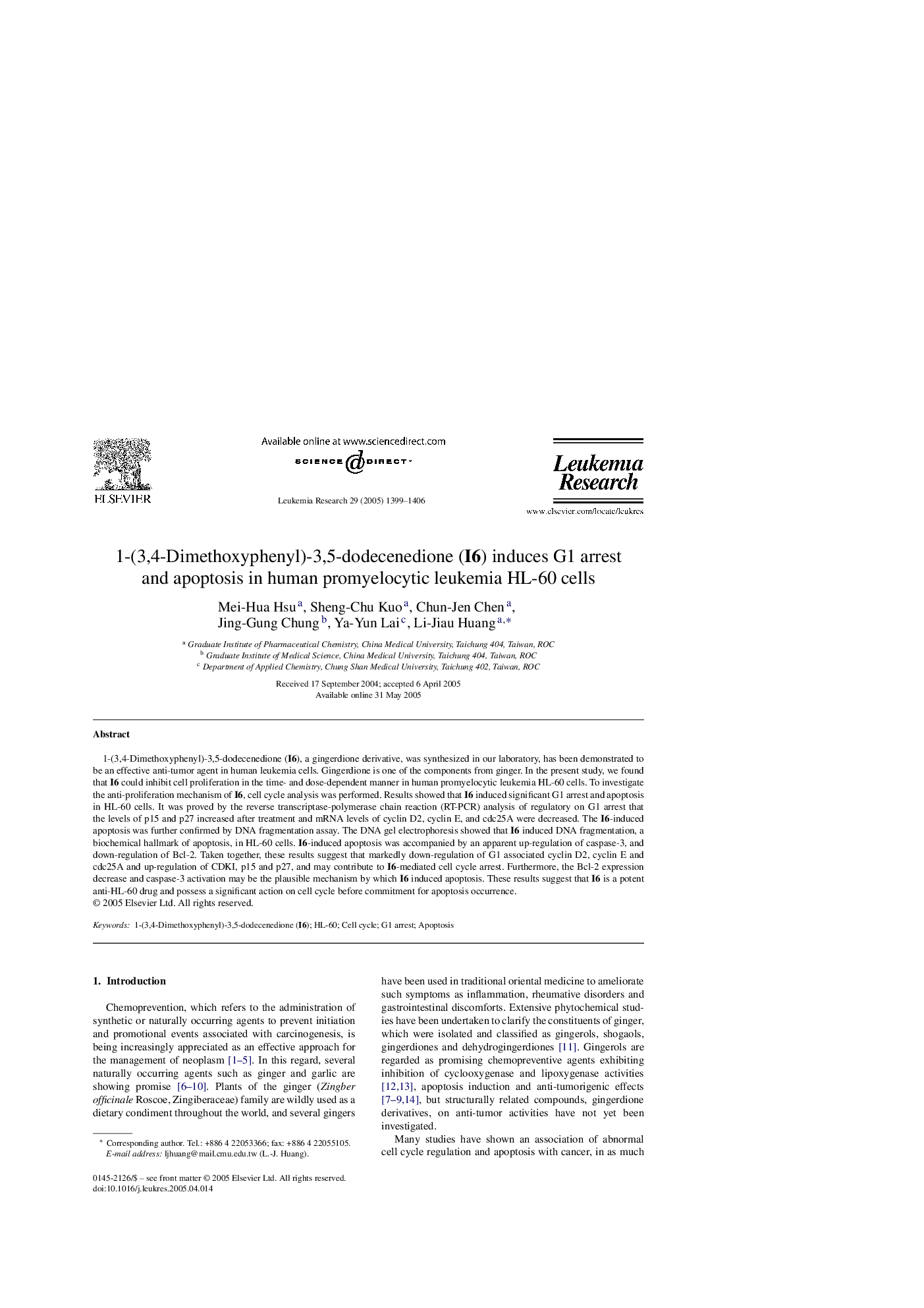| Article ID | Journal | Published Year | Pages | File Type |
|---|---|---|---|---|
| 10909700 | Leukemia Research | 2005 | 8 Pages |
Abstract
1-(3,4-Dimethoxyphenyl)-3,5-dodecenedione (I6), a gingerdione derivative, was synthesized in our laboratory, has been demonstrated to be an effective anti-tumor agent in human leukemia cells. Gingerdione is one of the components from ginger. In the present study, we found that I6 could inhibit cell proliferation in the time- and dose-dependent manner in human promyelocytic leukemia HL-60 cells. To investigate the anti-proliferation mechanism of I6, cell cycle analysis was performed. Results showed that I6 induced significant G1 arrest and apoptosis in HL-60 cells. It was proved by the reverse transcriptase-polymerase chain reaction (RT-PCR) analysis of regulatory on G1 arrest that the levels of p15 and p27 increased after treatment and mRNA levels of cyclin D2, cyclin E, and cdc25A were decreased. The I6-induced apoptosis was further confirmed by DNA fragmentation assay. The DNA gel electrophoresis showed that I6 induced DNA fragmentation, a biochemical hallmark of apoptosis, in HL-60 cells. I6-induced apoptosis was accompanied by an apparent up-regulation of caspase-3, and down-regulation of Bcl-2. Taken together, these results suggest that markedly down-regulation of G1 associated cyclin D2, cyclin E and cdc25A and up-regulation of CDKI, p15 and p27, and may contribute to I6-mediated cell cycle arrest. Furthermore, the Bcl-2 expression decrease and caspase-3 activation may be the plausible mechanism by which I6 induced apoptosis. These results suggest that I6 is a potent anti-HL-60 drug and possess a significant action on cell cycle before commitment for apoptosis occurrence.
Keywords
Related Topics
Life Sciences
Biochemistry, Genetics and Molecular Biology
Cancer Research
Authors
Mei-Hua Hsu, Sheng-Chu Kuo, Chun-Jen Chen, Jing-Gung Chung, Ya-Yun Lai, Li-Jiau Huang,
